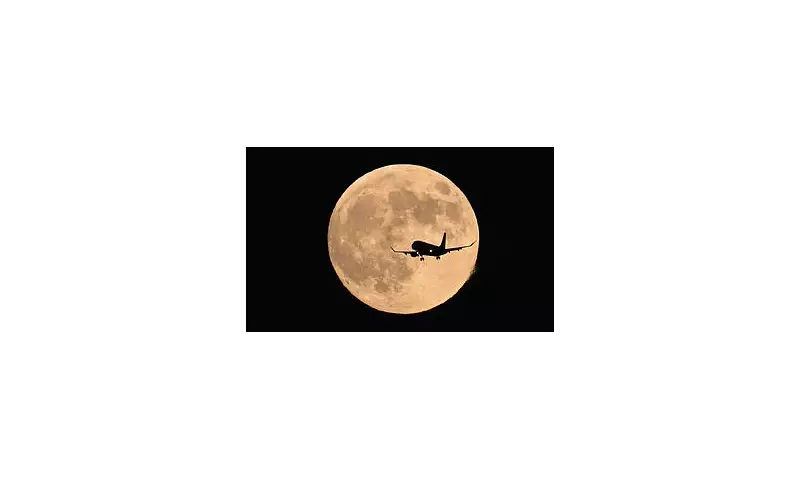
Stargazers across the United Kingdom are in for a celestial treat this week as the magnificent Harvest Supermoon, the fourth and final supermoon of 2024, prepares to dominate the night sky.
This spectacular lunar event promises to be the most impressive of the year, appearing significantly larger and brighter than typical full moons. The supermoon will reach its peak illumination during the early hours of Wednesday morning, offering a breathtaking sight for early risers and night owls alike.
What Makes This Supermoon Special?
The Harvest Supermoon earns its name from traditional farming calendars, as its bright light historically helped farmers gather crops into the night during autumn. This year's version is particularly special as it represents the closest approach of the moon to Earth in 2024.
Key viewing details:
- Peak illumination occurs around 2:45 AM on Wednesday
- The moon will appear approximately 14% larger than usual
- Expect significantly enhanced brightness in the night sky
- Optimal viewing requires minimal cloud cover and light pollution
Perfect Viewing Conditions
Astronomical enthusiasts are particularly excited about this supermoon as it coincides with favourable weather conditions across much of Britain. Clear skies are forecast for many regions, providing excellent opportunities for photography and simple moon-gazing.
"This is arguably the best supermoon viewing opportunity we've had all year," noted a spokesperson from the Royal Astronomical Society. "The combination of the moon's proximity and favourable autumn weather creates ideal conditions for observers across the country."
How to Get the Best Experience
For those hoping to capture the perfect view:
- Find an open area away from city lights and tall buildings
- Look toward the eastern horizon as darkness falls
- The moon will appear most dramatic when near the horizon
- No special equipment needed - visible to the naked eye
This celestial spectacle marks the conclusion of 2024's supermoon series, making it an event not to be missed by astronomy enthusiasts and casual observers alike. The next comparable supermoon event won't occur until next year, giving Britons extra incentive to look skyward this week.





